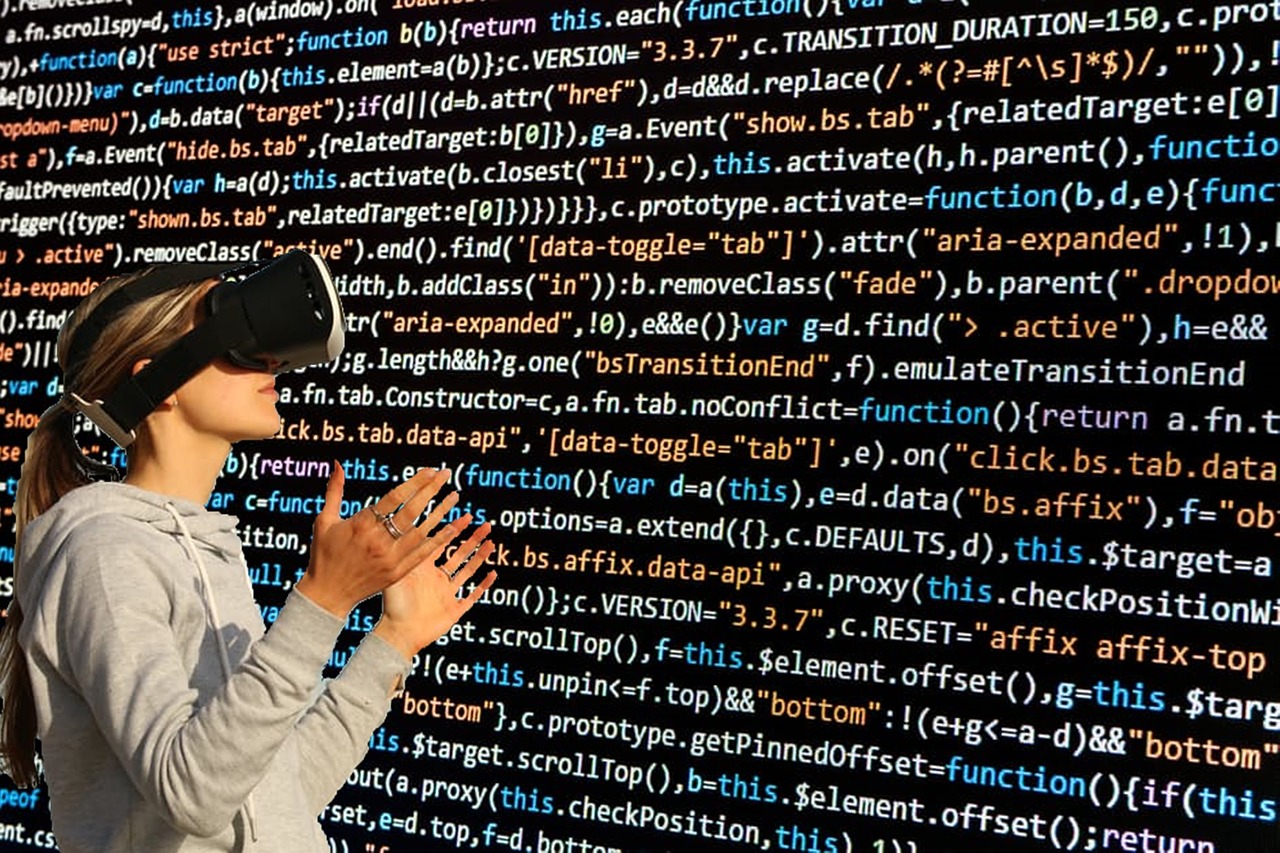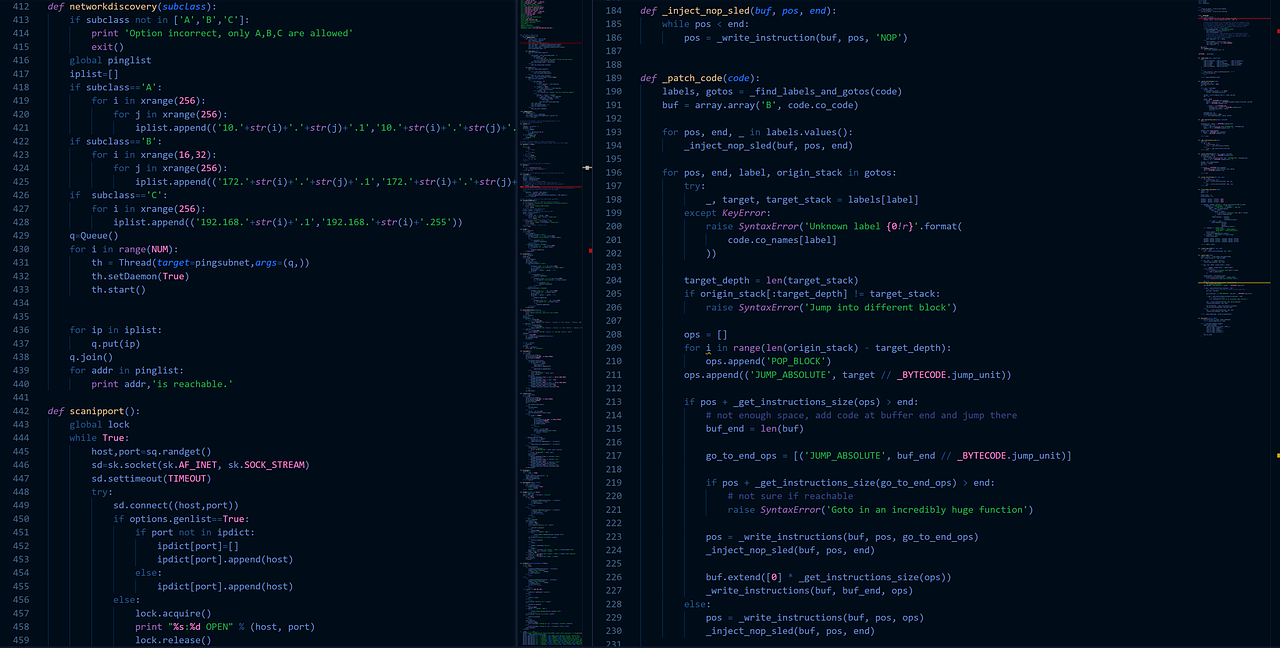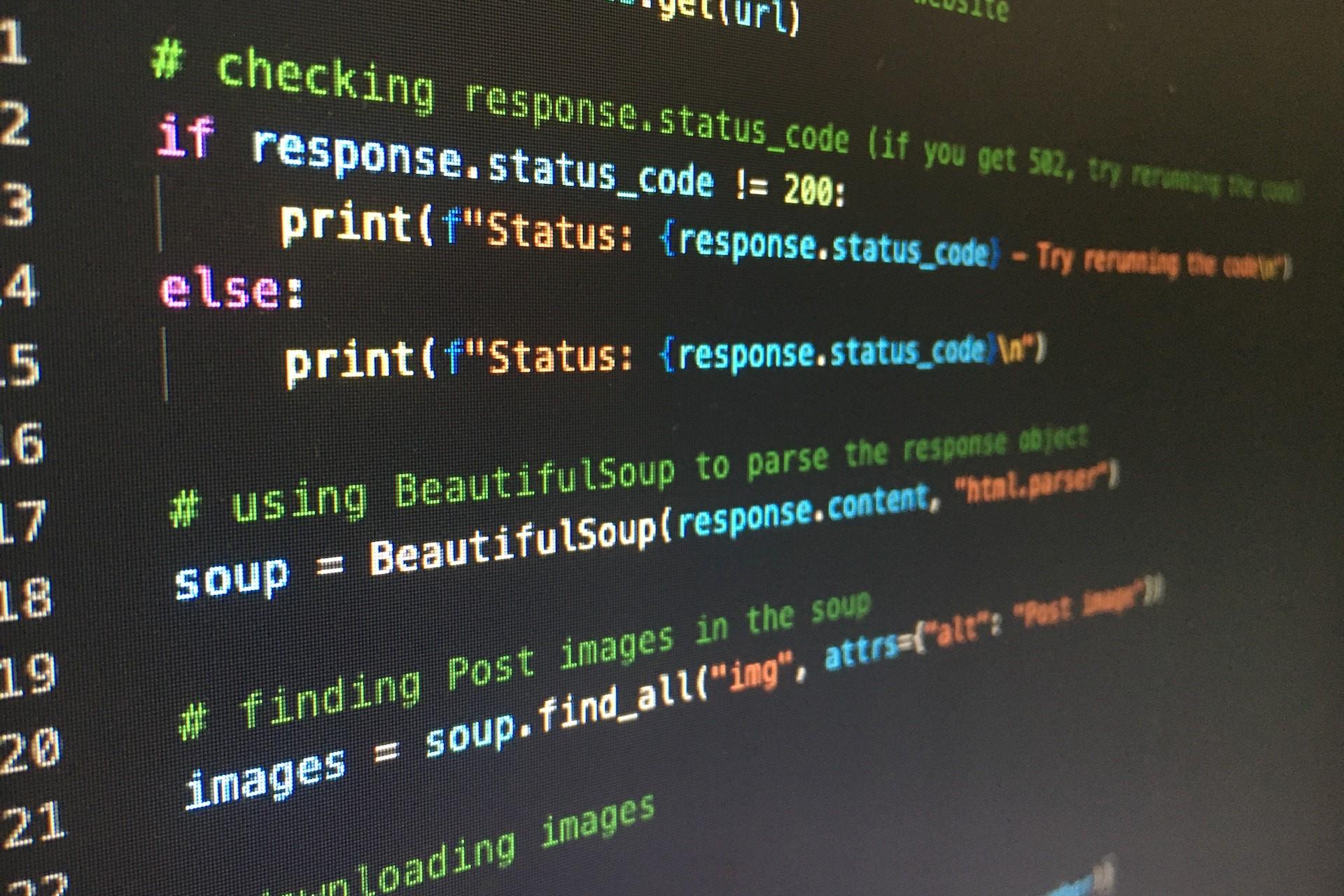You probably can't remember a world without the computer if you're of the Gen Z era, or possibly even Gen Y. Every part of our modern-day lives now revolves around the computer — in schools, at work and at leisure. How would we communicate without our smartphone, tablet or laptop and where would we source our knowledge if not for the web?
How would we function as humans?
Maybe that's a bit of overkill but the point is that most of us rely heavily on our computer or another tech device on a daily basis, but how many of us know what goes on in the background?
Computer programming, or coding, is the process of writing instructions for computer devices and systems. Its most basic function is to direct the computer to perform a single specific action while advanced programming involves software and data engineering.
There are a number of different programming languages used by computer programmers. Some are fairly basic, others advanced and some are more useful than others for specific functions and applications.
In terms of being 'in demand' when it comes to career opportunities, the following programming languages regularly rank in the top 5:
- JavaScript
- Python
- HTML
- CSS
- Java.
For this series of articles, we are going to look closely at Python because, despite the fact that it is a relatively old programming language, it is still considered to be one of the best general-purpose programming languages today.
Search about online python course here.


What is Python?
Python is one of the most popular programming languages in the world and is used extensively for web and software design, data science and automating tasks. Python was the language used to create the recommendation algorithm for Netflix and develop the software for self-driving cars.
Guido van Rossum started to create the Python programming language in 1989. At the time, van Rossum was also reading scripts from the 1970s comedy series, Monty Python's Flying Circus. He was yet to come up with a name for the language but knew he wanted one that was unique, catchy and had a slight air of mystery — hence Python.
Python is considered easy to learn in comparison to other languages and is often adopted by people without specialist programming knowledge, such as those in the science and accounting fields, to create basic programs for areas such as finance management.
Other tasks that regular people use Python for include:
- filling out online forms
- converting text files to spreadsheets
- updating a shopping list
- assigning chores to family members or projects to staff members
- sending automatic text message reminders.
Of course, if you're keen to go into a tech-based career or get a job as a computer programmer, learning Python should definitely be on your to-do list.
Where Can I Learn Python in Australia?
If you're interested in learning Python, there are courses out there for beginners and advanced users alike. Before you start searching for a course, make sure you know your learning goals: your purpose for learning Python, the knowledge you want to gain, and the skills you'd like to develop. Knowing your overarching goals will help you narrow down your search and find the right Python course to meet your needs.
University courses
You can, of course, enrol in university degrees in computer science or information technology, which will cover all areas including web design and development, systems management, data analysis, security and programming and coding in a range of languages.
However, universities also offer short courses, such as the Python Programming Course Level 1A and Level 1B offered by the University of Sydney. These two courses are each run over one 8-hour session and include topics such as introduction to Python Notebook and libraries, variables and data types, creating functions, reading and writing to data files, and data visualisation and analysis. RMIT Online also offers a fully online qualification focusing on basic and advanced Python functions, web development and other concepts.
TAFE courses
Many TAFE institutions offer certificate or diploma courses in computer science, coding and programming. You can do a general course or choose one that focuses solely on Python, such as the Coding in Python micro-credential course offered by TAFE Queensland. This particular qualification runs for 18 weeks for 3 hours per week and covers all the basics of the Python programming language as well as Python modules, packages, strings and exceptions.
Find out about python class here.

Community colleges
Community colleges offer a wide range of usually practical-based classes, many of which include computing skills, coding and programming methods. The Sydney Community College, for example, offers a Python Coding for Beginners course, covering all the basic functions of Python, strings, variables and objects. Students leave the course with the practical skills required to create and test their own lines of code.
Independent training centres
There are a number of independently run training facilities that offer various classes and online tutorials in all aspects of information technology and computer skills. The Knowledge Academy is one of these, with its comprehensive Python Programming Course covering an introduction to Python, installation, Python basics and functions.
Python for Beginners
Fortunately, even if you are a complete novice when it comes to computer programming, Python is easy to learn and easy to use.
Learning the basics of Python as a complete beginner can take anywhere from a couple of weeks to several months depending on what you want to use it for.
The best place to start is the official Python web page, where you will find a section that lists dozens of online Python tutorials for beginners. The range of tutorials includes:
- Learn Python in 10 Minutes
- Introduction to Python
- Learn Coding with Python Notebooks
- Python Programming: An Introduction to Computer Science
- Learn Python for Beginners.
Many of the tutorials are free and may are also suitable for people who are experienced with other programming languages but are learning Python for the first time.
Beginners may find it a good idea to get started by watching the free 'Introduction to Python' videos available on YouTube to get a basic understanding of the functions of Python and some of the basic concepts. The introduction videos also give beginners a better idea of Python's full range of applications.
Our best advice if you're undertaking self-paced online learning is to take everything slowly. Watch each video lesson or tutorial and put the examples into practice straight away. The great thing about online, pre-recorded videos is that you can rewind and rewatch as many times as you need. Once you've mastered a particular function, move on to the next.
Check out online python class here.

If you are enrolled in a class or in-person tutorial, you can also network with your peers and work together to gain a broader knowledge of new concepts. Combining your in-class work with a similar online tutorial is also a great way to revise new concepts and practice new skills.
Intermediate and Advanced Python Learning
Once you get started with Python and see all the possibilities for its uses, you may not want to stop.
Advanced Python functions can take longer to learn, even years if you want to explore all the different applications, however, you can make this fun — almost a hobby — by completing different projects.
All you need to do to find projects to help develop your skills is to Google 'Python projects'. Here are a few we found.
Intermediate Python projects
- Address Book
- Text Editor
- Calculator
- Countdown Clock and Timer
- Memory Puzzle Game
Advanced Python projects
- Speed Typing Test
- Plagiarism Checker
- Web Crawler
- Instagram Photo Downloader
- Tetris Game
Projects allow you to learn and practise new skills as you create useful applications at your level.
Although these projects 'look' basic and fun, it's important not to dive into them too early before mastering the basics.
For people who want to learn advanced Python methods and concepts as more than a hobby, you may want to investigate classes in advanced programming. YouTube can be a great place to start as these videos can give you a good idea of the types of concepts and knowledge you might need. You can also find a range of tutorials online or enrol in a course at your local TAFE or university.
Some of the advanced concepts worth exploring include:
- map function
- itertools
- collections
- generators
- threading
- regular expressions.
These concepts, and others, are considered to be 'must-know' concepts for people to become experienced Python developers and programmers with the ability to improve their code readability and speed.
As you can probably see, Python has many different applications and, once you get started with the basics, it has the potential to quickly become addictive.
What project do you want to try? Give it a go.
Summarise with AI:




















